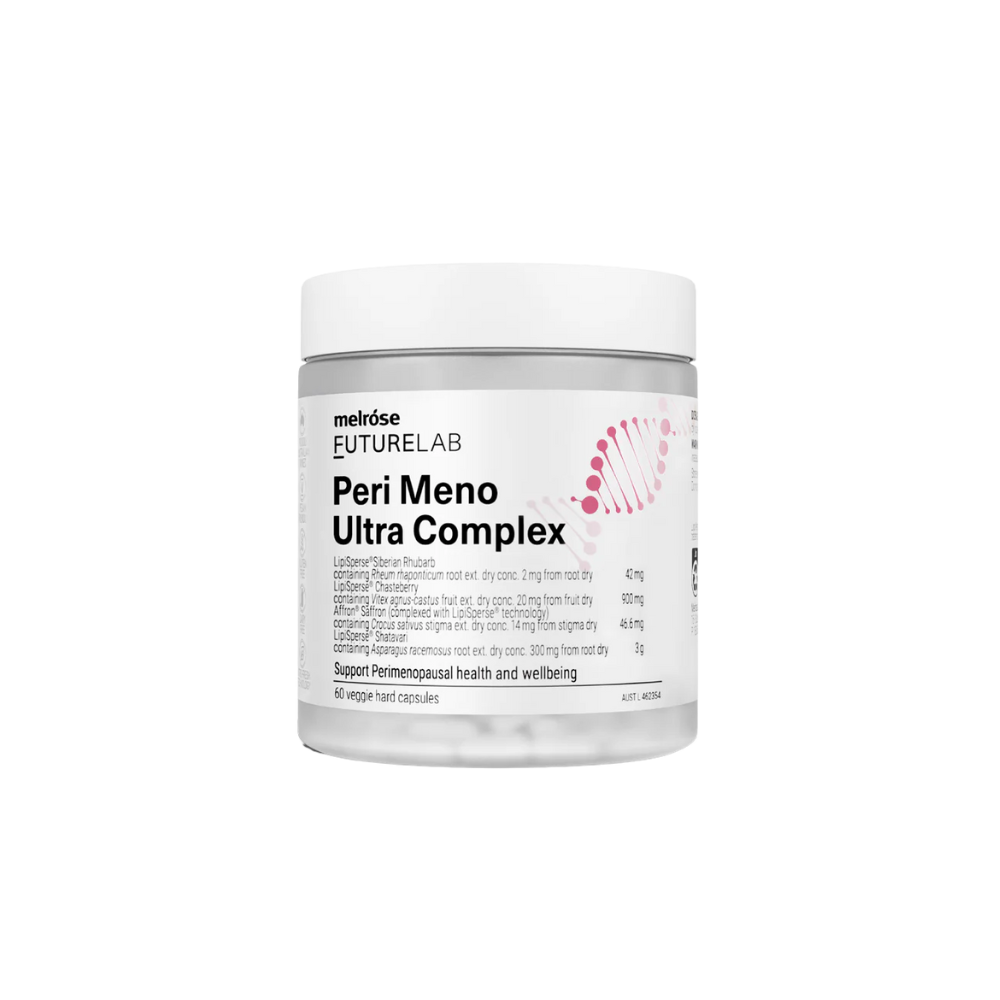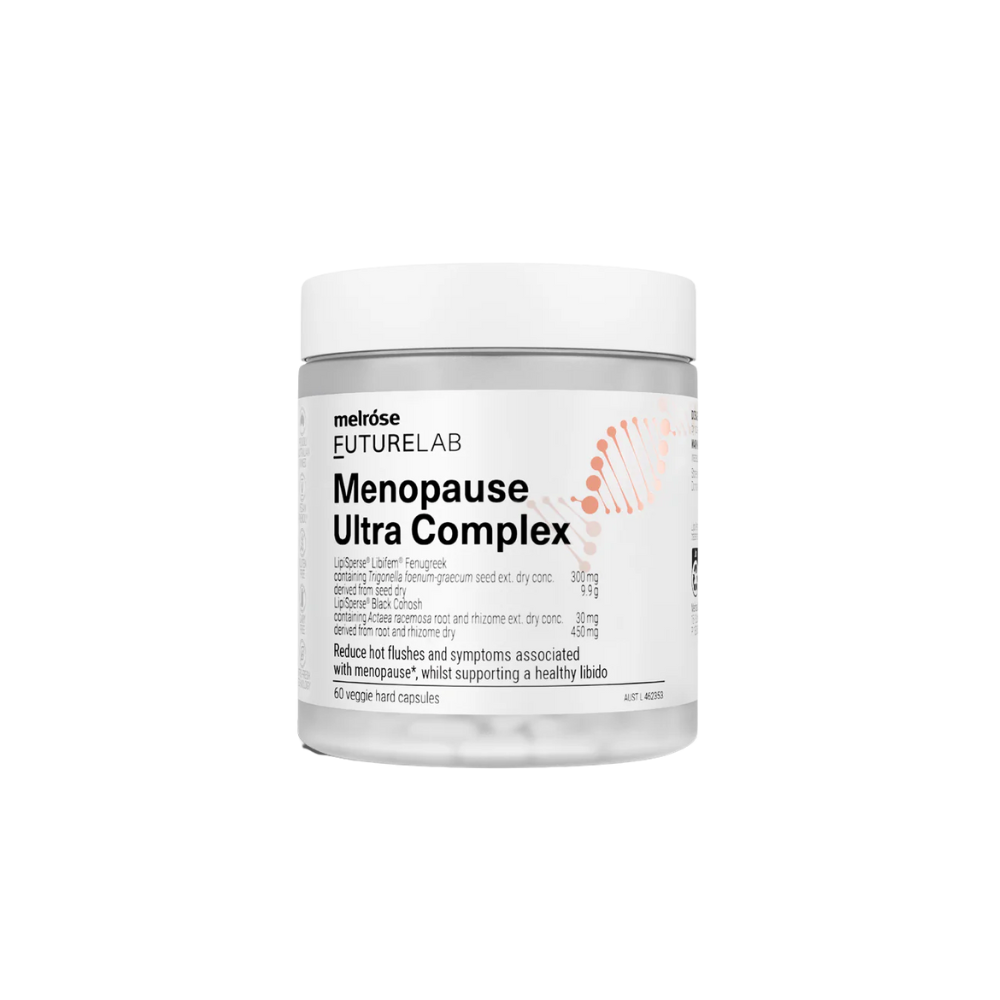What no one tells you about the years before menopause
If you've been feeling like your body is playing tricks on you; your periods are unpredictable, you're waking up at night or things that never used to stress you now feel overwhelming, you might be entering perimenopause. And if this is the first time you're hearing that term, you're not alone.
Perimenopause is one of the most under-discussed yet significant phases in a woman's life. While menopause gets attention, the years leading up to it often leave women confused and searching for answers. At Nourishing Apothecary, we believe every woman deserves to understand what's happening in her body and feel empowered to navigate this transition with confidence.
What exactly is perimenopause?
Perimenopause means "around menopause"; it’s the transitional period when your body gradually shifts away from reproductive years. Your ovaries start producing less oestrogen, but this can be an unsteady process. Hormone levels may fluctuate wildly, creating symptoms that feel stressful and confusing.
Unlike menopause (which you are considered to have entered after 12 months without periods), perimenopause can last from months to over a decade. This means many women spend years experiencing symptoms without realising they're hormonally connected.
When does perimenopause start?
Most women enter perimenopause in their 40s, but it can begin in the mid-30s or early 50s. The average age is 47, but your timeline depends on genetics, lifestyle, stress levels and your overall health.
Some early signs include:
-
Changes in menstrual cycles (shorter or longer cycles, heavier or lighter periods)
-
New or worsening PMS symptoms
-
Sleep disturbances
-
Mood changes or increased anxiety
-
Different responses to stress
The symptoms no one warns you about
Perimenopause affects virtually every body system because oestrogen receptors exist throughout your body, in your brain, bones, heart, skin and digestive system.
Common symptoms of perimenopause:
-
Irregular periods
-
Hot flushes and night sweats
-
Sleep problems
And the sneakier symptoms many don't connect to hormones:
-
Brain fog and memory issues
-
Mood swings and increased anxiety
-
Joint aches, particularly mornings
-
Digestive changes and bloating
-
Skin dryness or adult acne
-
Weight gain around the middle
-
Decreased motivation
-
Increased sensitivity to stress
Why perimenopause feels so chaotic
During perimenopause your hormones fluctuate dramatically. You might experience both oestrogen dominance and deficiency within the same cycle, sometimes days apart.
This hormonal chaos affects brain neurotransmitters like serotonin (mood and sleep) and GABA (which product feelings of calm). It impacts your stress response system, making daily stressors feel overwhelming. Your thyroid and adrenals can become overwhelmed too, contributing to fatigue, weight changes, and mood disturbances.
The domino effect
Perimenopause symptoms trigger each other. Poor sleep increases stress hormones, worsening mood swings and hot flushes. Digestive issues affect nutrient absorption, leaving you tired and unable to produce needed hormones and neurotransmitters.
This is why addressing perimenopause requires a holistic approach – looking at your entire system rather than tackling isolated symptoms.
Supporting your body naturally
While perimenopause can feel overwhelming, you can support your body through this transition. The goal isn't fighting changes, but nourishing your system as it adapts.
Nutrition for hormonal balance
Your body needs specific nutrients to produce, metabolise, and eliminate hormones effectively:
-
B vitamins for energy and nervous system support
-
Magnesium for sleep and stress management
-
Omega-3 fatty acids for brain health and reducing inflammation
-
Antioxidants to protect against increased oxidative stress
Focus on whole foods rather than restrictive diets, which stress your already-working-hard hormonal system.
Movement that works with change
Regular movement is crucial, but your body might respond differently than before. High-intensity workouts might exhaust rather than energise you, especially with sleep issues or high stress.
Consider gentle strength training for bone health, yoga for stress management, walking or swimming for cardiovascular health, and any movement you genuinely enjoy.
Stress management becomes essential
During perimenopause, your stress tolerance changes significantly. Chronic stress worsens every symptom, making stress management not just helpful, but essential.
This includes mindfulness practices, adequate rest, setting boundaries, engaging in restorative activities and finding the support you need.
Creating supportive rituals
Small, consistent actions make significant differences. Build rituals around mornings (gentle movement, nutritious breakfast, mindfulness), evenings (wind-down routines, limited screens, herbal tea), and throughout the day (regular meals, hydration, stress breaks).
When to seek support
Consider professional guidance when symptoms significantly impact your quality of life, you experience severe mood changes, sleep disturbances affect daily functioning, you're unsure if symptoms are perimenopause-related, or you want personalised natural approaches.
Your unique journey
Every woman's perimenopause experience differs. There's no "right" way to navigate this transition. Listen to your body, be patient as you discover what support you need, and remember this is natural, it’s not a condition that needs "fixing."
At Nourishing Apothecary, we believe in empowering women to understand their bodies and supporting them with natural, effective solutions. Perimenopause doesn't have to be endured – with the right knowledge and support, it can be a time of discovering new ways to nourish yourself.
Your body will carry you through this transition with proper support, from the inside out.
Ready to explore natural ways to support your hormonal health? Discover our range of supplements designed for women navigating hormonal transitions, or book a discovery call with our Naturopath and Homeopath, Toni for personalised perimenopause support.






